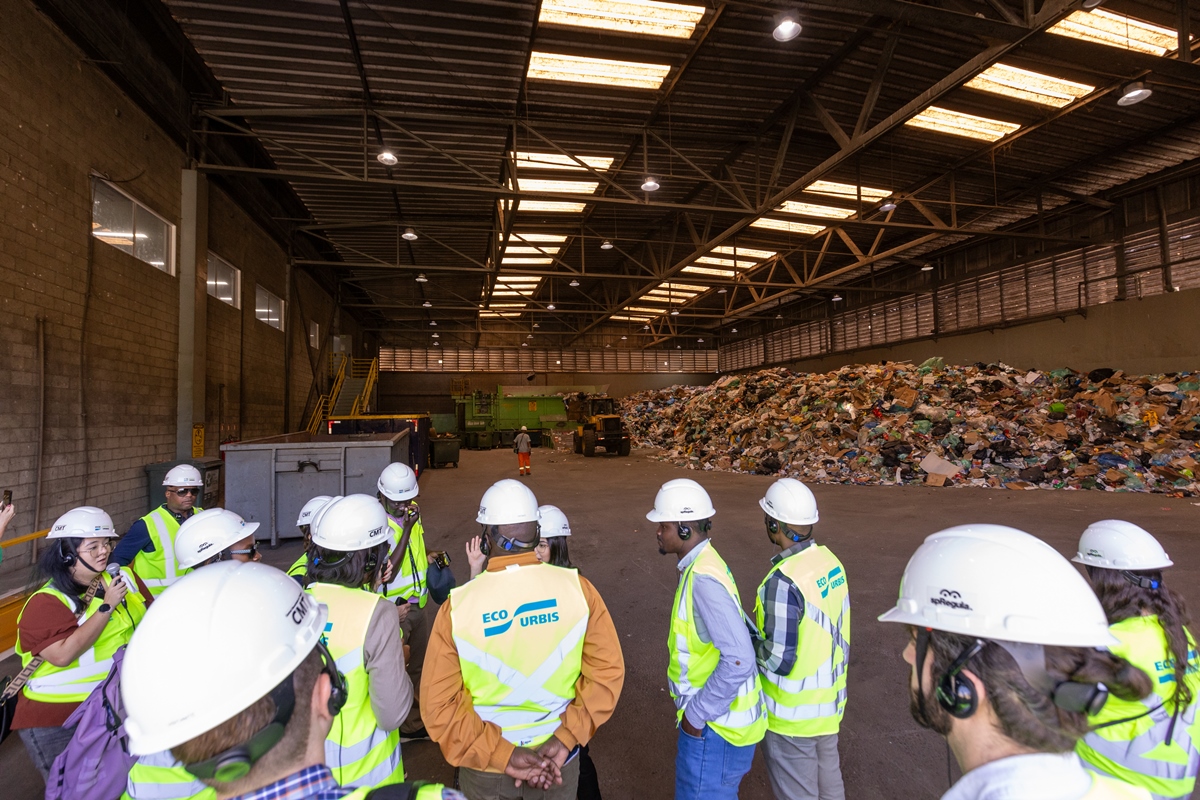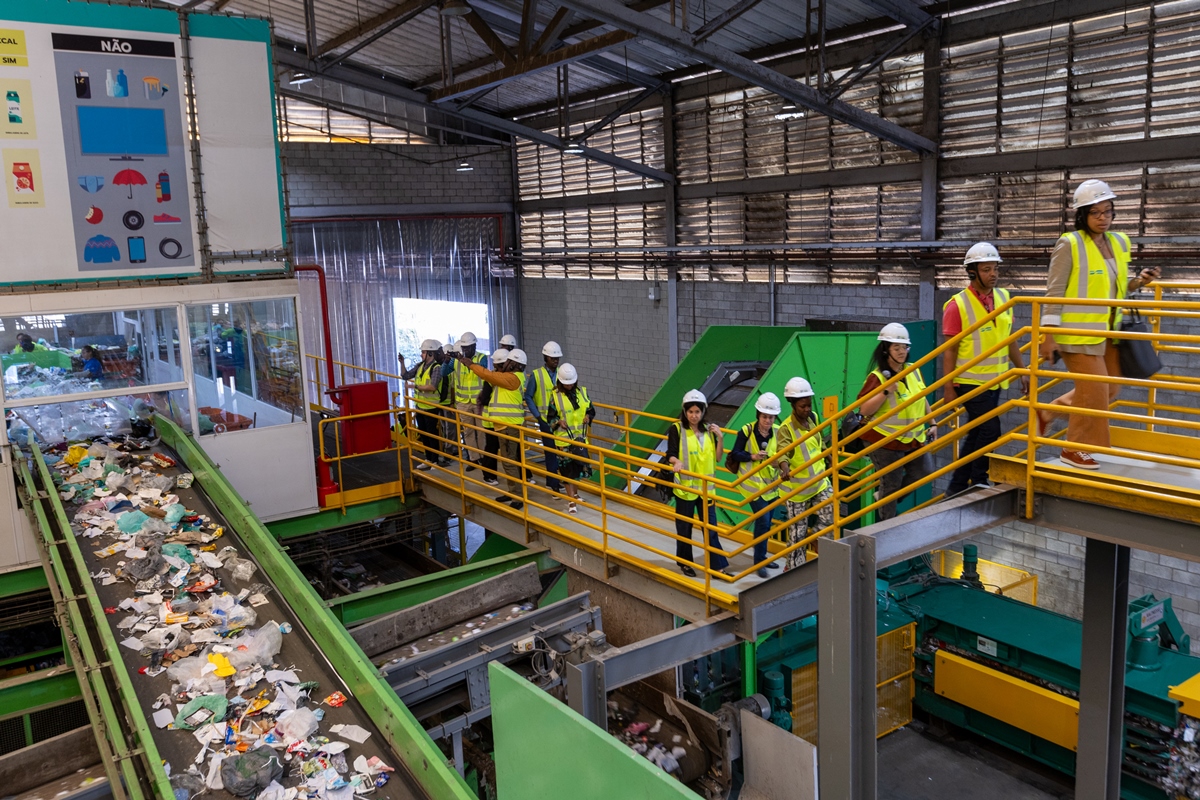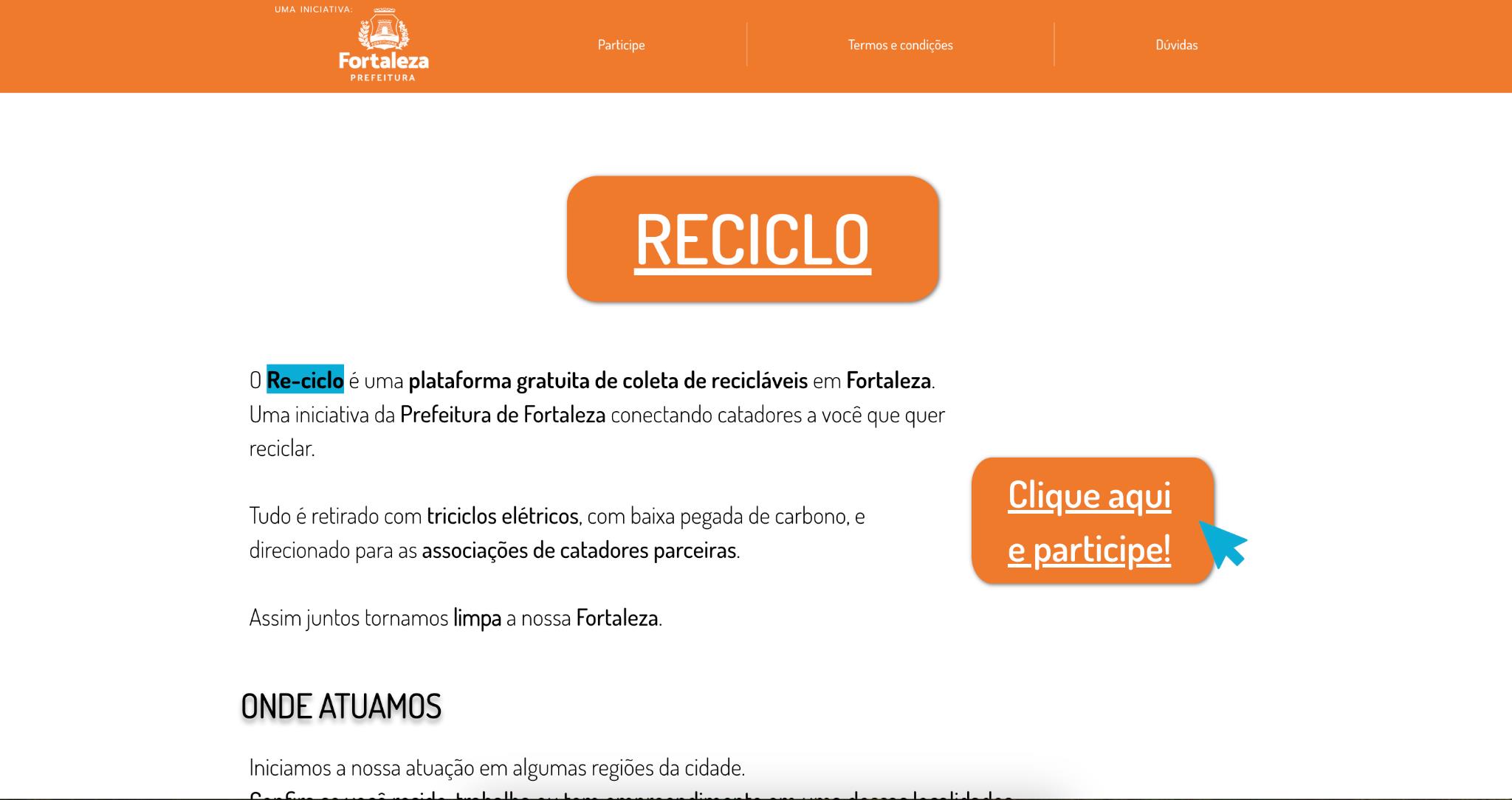Promoting Job Opportunities and Sustainability: The Cross-Sectoral Approach of Brazilian Cities Fosters Partnerships with Cooperatives of Waste Pickers..
The rapid urbanization phenomenon experienced by both Brazilians and Africans has disproportionately increased the amount and types of solid waste generated. The UMDF invited a delegation of high level municipal staff from African cities to visite São Paulo, Fortaleza, and Curitiba to discover the innovative methodologies implemented by these cities to promote sustainable waste management and create job opportunities.
SP Coopera is promoting the combination of high-tech sorting centers and manual waste picking in the field.
The SP Coopera program, implemented in São Paulo, not only seeks to address immediate challenges but also to foster a sustainable and resilient waste management ecosystem. The UMDF delegation visited a plant that has been operational for over a decade and is one of the cornerstones of the municipal cooperativism program. This initiative, launched in 2020, is the result of a municipal law passed in 2018 to promote the work of waste picker cooperatives.

The sorting center combines manual and mechanized work, incorporating new technologies, such as lasers, to optimize waste management. Financed by the city, the center is operated by one of the two concessionaires responsible for waste collection and treatment in São Paulo.
The local authorities have facilitated the creation of a partnership between the concessionaire and cooperatives. The municipality supports the formalization of informal waste collectors by encouraging them to form cooperatives. These cooperatives benefit from municipal subsidies to work alongside the automated waste collection centers.
There is a coexistence of very modern methods, exemplified by this center, which uses imported high-tech machines, and manual collection work in the field—one complementing the other, rather than being mutually exclusive.
Support for cooperatives has a major impact on the lives of many workers and helps create a virtuous cycle.
These cooperatives are a significant source of employment and promote a comprehensive, cross-sectoral approach by the municipality, falling equally under the jurisdiction of the environment, employment, and entrepreneurship departments.
The delegation was able to witness firsthand, through the example of São Paulo, the importance of raising public policy awareness and maintaining a robust network of small and medium-sized firms capable of providing services. Establishing a legal framework that compensates for the services provided is also a key factor in successfully implementing an ambitious waste management strategy that promotes sustainability and job opportunities.

In 2004, the municipality of São Paulo created laws clarifying the responsibilities of each party (see frieze in the presentation). The private concessionaire has benefited from municipal investments in the form of income and financing. Additionally, since the concession is for 20 years, the company is in a position to make long-term investments.
Revenues are also generated further down the value chain through the resale of recycled products. Furthermore, by constructing landfill sites for gas collection, the concessionaire can generate electricity, which is either sold or used to power its fleet of biogas-powered collection trucks.
Fortaleza and Curitiba are also promoting environmental awareness and job opportunities to address the challenge of waste management.
In Fortaleza, within the framework of the local climate management plan, authorities are experimenting with various solutions to combat waste. A program called Reciclo has been launched: an app allows residents to call waste collectors to their homes, ensuring that waste is recycled before it reaches the garbage can.
Waste collectors are trained and provided with a bicycle in the municipality’s colors to collect waste from people’s homes. As in São Paulo, a combination of technological and manual solutions is leveraged to create job opportunities.
In Curitiba, the Ecocidadão (EcoCitizen) Program aims to guide, organize, and support associations and cooperatives of recyclable material collectors in the state, with the goal of reducing the volume of recyclable waste dumped into the environment.
Support provided to 40 waste picker cooperatives helps extend the lifespan of municipal landfills, as encouraging selective collection, reverse logistics, and material sorting reduces the amount of recyclables deposited in landfills and promotes the return of materials to the production chain, decreasing waste generation.
Just like in São Paulo and Fortaleza, the organized activities of recyclable material collectors also pave the way for their social inclusion and that of their families, generating work and income, enabling economic sustainability, and fostering local development.
By exploring innovative approaches and learning from successful case studies, representatives of African cities can gain valuable insights from cities facing similar challenges. Organized for the cities participating in the African Cities Program of the UMDF, the Brazil Study Tour has fostered cross-regional knowledge exchange and will undoubtedly contribute to improving the living conditions of urban populations in Africa.


